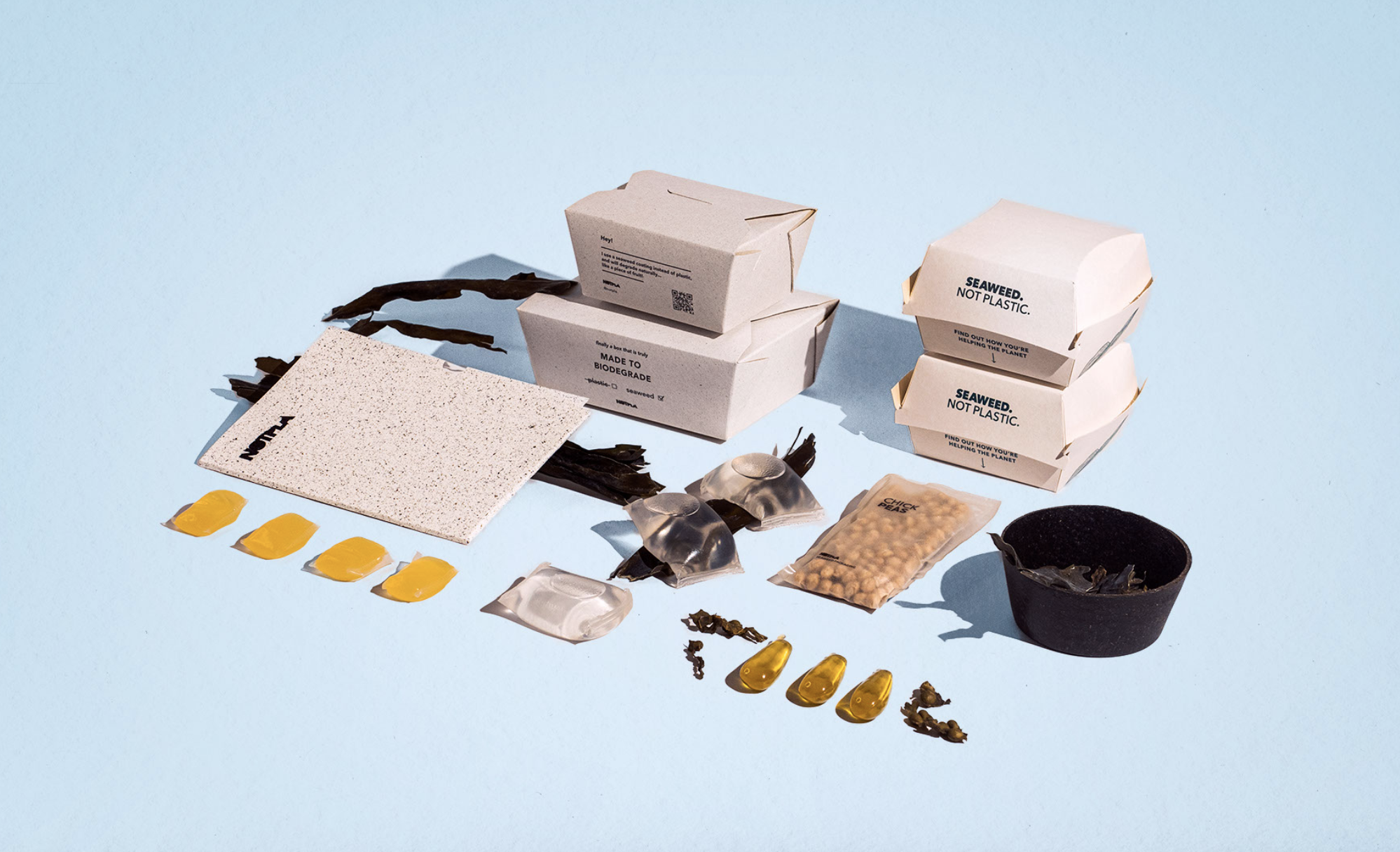Unwrapping the Global Plastics Problem
2022 Earthshot Prize winner Notpla is a UK-based seaweed packaging company focused on making packaging disappear. Notpla–short for “not plastic”–creates seaweed-based materials designed to replace single-use plastics such as cups, bottles, and grab-and-go condiments. Notpla tests new products, develops production technologies for commercial scale manufacturing, then partners with companies to launch and distribute packaging solutions for a range of markets including food, cosmetics, consumer electronics, and jewelry.
In 2019, Notpla teamed up with British sports drink company Lucozade to distribute water and sports drinks to London Marathon runners in edible and biodegradable seaweed sachets called Ooho. Notpla’s plastic-free hydration stations drew worldwide public attention when post-marathon clean-up footage showed distinct contrasts to traditional hydration stations surrounded by plastic bottles. Since the marathon, Notpla has partnered with companies to trial Ooho a variety of settings and applications including cocktails and condiments at music festivals and sporting events.
Notpla continues to expand its product line, recently launching the world’s first seaweed-coated takeout boxes. The boxes are home compostable and provide the same grease and water-resistant qualities ideal for takeout containers–without using plastic. In partnership with Just Eat, a European online food delivery service, Notpla has rolled out more than 1.3 million takeout boxes in restaurants and at big sporting events across the UK, the Netherlands, Germany, Austria, Poland, and Ireland.
“Our solutions break down naturally like a piece of fruit and don’t leave behind microplastics,” says Notpla Research Director Louise Anderson. “Notpla is supporting Just Eat's goal to help cut back on the 2 billion plastic boxes used in takeout packaging across Europe each year.”
Notpla is scaling its technology to bring new products to market and reach more consumers internationally. They use seaweed extracts, seaweed by-products, and whole seaweed in their material formulation and product design process. Louise and a team of designers, scientists, and engineers experiment with varying combinations of seaweed compounds and by-products to produce materials with different end-use properties.
Notpla also uses seaweed fibers left over from scaled product lines to pilot secondary packaging materials like paper, card stock, and rigid materials that completely dissolve in water for use in cosmetics, consumer electronics, and jewelry.
Their next big push is developing flexible packaging solutions to fit into existing equipment used to produce heat-sealable pouches for laundry detergent or food products like hot chocolate, instant coffee, and dry goods like beans.
“We hope end consumers will see the benefits of our packaging solutions and understand the big picture impact of what we are trying to do as a brand,” says Louise. “We want to inspire consumers to demand transparency in the packaging that they use.”
As production increases, Notpla continually evaluates how to sustainably source seaweed to meet their commercial scale. Notpla’s seaweed sourcing team is dedicated to diversifying their supply chain by exploring new partnerships and testing new types of seaweed for production. “We have our own standards in place to ensure we are sourcing from fully traceable partners without causing any harmful ecological effects,” says Louise. “GreenWave plays a role in rallying support for alternative solutions that challenge the status quo and advance seaweed farming.”
GreenWave is excited for companies like Notpla to create market opportunities for non-food grade seaweed through scalable packaging solutions. Their emphasis on regional sourcing from seaweed farms is a win-win that will support regenerative ocean farmers and encourage widespread adoption of seaweed-based plastic alternatives.





